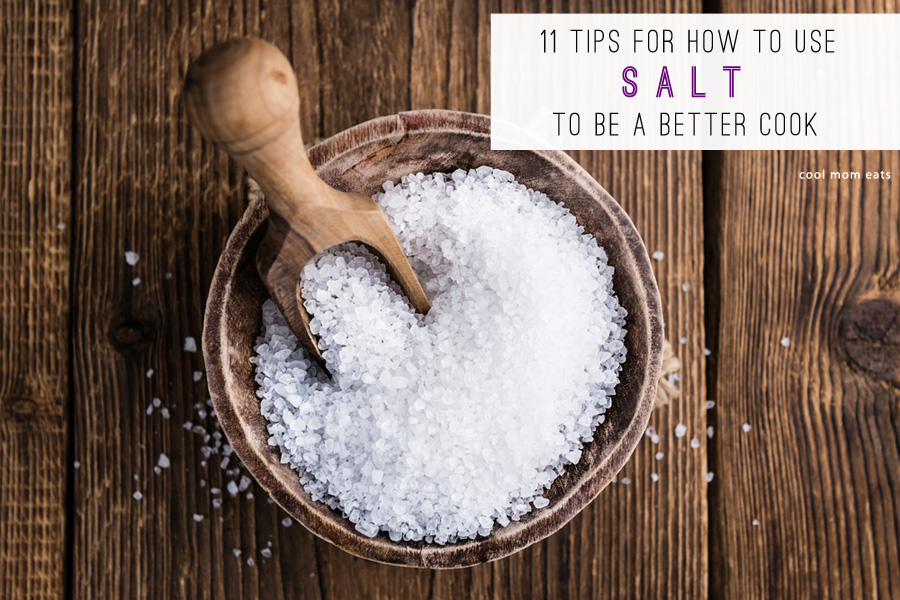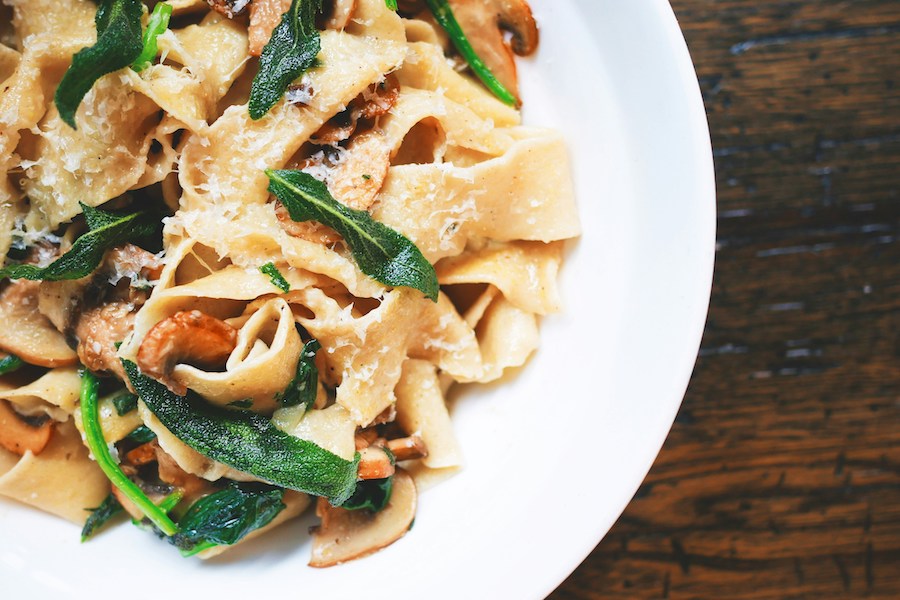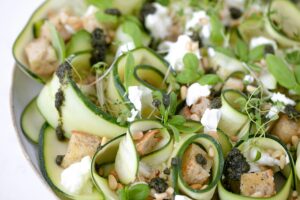Hands down, the reason restaurant food is better than home cooking is that chefs know how to properly use salt. It is the essential ingredient in every meal–in every bite, really–that knocks your socks off. Chefs aren’t afraid to let it rain down on top of steak; they know that salting throughout cooking is much more important than just seasoning at the end; and they know that adding a pinch of salt in a few unexpected places can often yield tastier, more tender, and even juicier results. It also happens to be the cheapest way to coax out flavor.
Are your cooking skills worth their salt? Read on for 11 tips on how to use salt that will take you from being a good cook, to a great one.
Related: Non-toxic cleaning with salt: 8 unexpected uses in the kitchen and beyond.
Before we get to the tips, I have a general note on how to use salt: If you’re not doing so already, try cooking with kosher salt, such as Diamond Crystal or Morton’s Kosher Salt. Regular table salt contains additives, but more importantly, can result in overly-salty foods and baked goods because the grains are much finer than kosher salt. I find that it’s also much easier to control the amount when using coarse kosher salt since it doesn’t dissolve between my fingers like table salt.

1. Season early! This may not be surprising, but it’s the most critical. Salt early and throughout cooking. If you salt only at the end, your food will taste, well, salty. If you add it throughout, your food will taste more pronounced, complex, and like the ingredients in the dish. So basically, a hell of a lot tastier.
2. Blanch greener vegetables. Using a little salt in the water that you use to blanch green veggies like green beans and broccoli will not only add flavor (good for the kids!), but will also help keep the chlorophyll—what makes vegetables green–from leaching into the water. Thus, more vibrant green vegetables.
3. Cook up tender scrambled eggs. Add a pinch of salt to your scrambled eggs before you cook them. The salt breaks down the proteins, creating a more tender texture. (And while on the subject, my other secret for melt-in-your-mouth scrambled eggs is to take them off of the heat before they are completely cooked.)
4. Balance bitter and sour flavors. Salt counterbalances the bitter tastebuds in our mouths, which is why some add a pinch of salt to their coffee grinds in the morning and why many of us love that salt rimmed glass for our margaritas.
Related: How to poach eggs with a trick from the kitchen goddess herself, Julia Child.

5. Mince garlic with less mess. Add a pinch of salt when mincing garlic to prevent it from sticking to your knife. The salt can also help break down the cell walls of garlic for a finer mince.
6. Whip loftier cream. A tiny bit of salt can help whipped cream reach loftier heights. Just be careful not to use too much or your whipped cream may taste a little salty.
7. Peel hard-boiled eggs with ease. A lot of people swear by adding salt to their boiling water for eggs, although I’m not sure of any scientific theory behind it. Either way, it’s easy enough to try and given that peeling eggs can be a total pain in the butt, why not?
8. Keep onions from burning. When tossing cut onions into a hot pan, throw a little salt in along with them. This draws out some of the onion’s moisture, which can help prevent burning.
9. Sweat your vegetables. Veggies with a high water content, like squash and eggplant, have the potential to end up soggy or, worse, make your whole dish soggy. Fix this by liberally salting the veggies and letting them “sweat” for about 15 minutes prior to cooking.
10. Make better tasting pasta, rice, and grains. Make your cooking water “taste like the sea.” That was my culinary school instructor’s daily mantra. Salt your water and taste it; if you can’t taste any salt, use more. This will infuse flavor into your pasta, rice, and grains, and make it so that you can use less salt in the end. Good for flavor and for your health too.
11. Make sweets even sweeter. It may sound counterintuitive, but used properly, salt brings out the natural flavor of foods, even sweet ones. Too much will definitely lend saltiness, but just a touch of salt on dessert will enhance that sweet flavor we all love.







